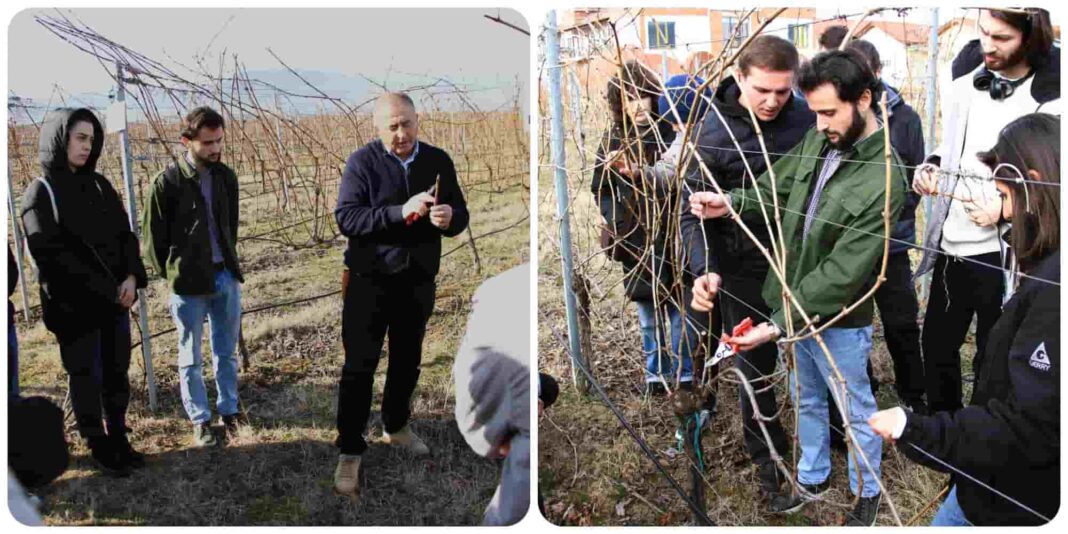Georgia, February 29, 2024: The training was held for students of agronomic and vineyard-winery educational programs on the basis of perennial cultures of the SIP Agriculture Scientific-Research Center.
Hosted by the SIP Agriculture Scientific-Research Center, the training provided invaluable insights into the intricacies of perennial cultures, particularly focusing on viticulture and winemaking practices.
Students enrolled in agronomic and vineyard-winery educational programs had the opportunity to delve into various facets of grape cultivation and wine production. Led by experts from the Agricultural Scientific Research Center, participants were briefed on essential topics such as grape variety characteristics, plantation certification processes, production of healthy seedlings, vineyard agrotechnology, soil management techniques, and optimal grape variety selection based on regional suitability.
A highlight of the training was the hands-on experience provided to students, who actively participated in vineyard pruning exercises. This practical component allowed them to apply theoretical knowledge in a real-world setting, gaining valuable skills that are crucial for success in the agricultural sector.
Levan Ujmajuridze, Director of the Agricultural Scientific and Research Center, underscored the center’s commitment to fostering collaboration with higher education institutions and student organizations. He emphasized the importance of nurturing knowledgeable and skilled personnel within the agricultural industry, noting that their expertise will play a pivotal role in advancing agricultural practices and driving the country’s overall development.
During the session, Director Ujmajuridze also introduced students to the center’s ongoing projects in the field of viticulture and winemaking, shedding light on the innovative initiatives aimed at enhancing agricultural practices and promoting sustainability within the sector.
As Jighaura continues to serve as a hub for agricultural education and research, initiatives like these training sessions play a vital role in equipping the next generation of agronomists and winemakers with the tools and knowledge they need to thrive in their chosen fields. With a commitment to ongoing education and collaboration, the future of agriculture in the region looks promising.



